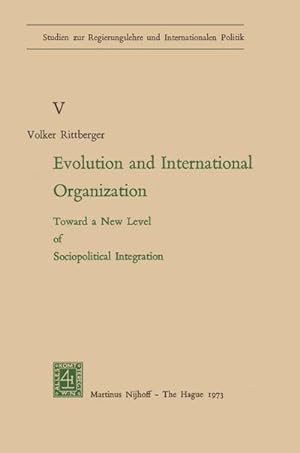evolution international organization new von rittberger volker (1 Ergebnisse)
FeedbackSuchfilter
Produktart
- Alle Product Types
- Bücher (1)
- Magazine & Zeitschriften (Keine weiteren Ergebnisse entsprechen dieser Verfeinerung)
- Comics (Keine weiteren Ergebnisse entsprechen dieser Verfeinerung)
- Noten (Keine weiteren Ergebnisse entsprechen dieser Verfeinerung)
- Kunst, Grafik & Poster (Keine weiteren Ergebnisse entsprechen dieser Verfeinerung)
- Fotografien (Keine weiteren Ergebnisse entsprechen dieser Verfeinerung)
- Karten (Keine weiteren Ergebnisse entsprechen dieser Verfeinerung)
- Manuskripte & Papierantiquitäten (Keine weiteren Ergebnisse entsprechen dieser Verfeinerung)
Einband
- alle Einbände
- Hardcover (Keine weiteren Ergebnisse entsprechen dieser Verfeinerung)
- Softcover (1)
Weitere Eigenschaften
- Erstausgabe (Keine weiteren Ergebnisse entsprechen dieser Verfeinerung)
- Signiert (Keine weiteren Ergebnisse entsprechen dieser Verfeinerung)
- Schutzumschlag (Keine weiteren Ergebnisse entsprechen dieser Verfeinerung)
- Angebotsfoto (1)
Gratisversand
Verkäuferbewertung
-
Evolution and International Organization : Toward a New Level of Sociopolitical Integration
Verlag: Springer Netherlands, 1973
ISBN 10: 9401183805 ISBN 13: 9789401183802
Anbieter: AHA-BUCH GmbH, Einbeck, Deutschland
Taschenbuch. Zustand: Neu. Druck auf Anfrage Neuware - Printed after ordering - phase two spanned the time from the late 1930's to about 1950 (Sohn's period III and Yalem's periods II and III). The literature produced during these years revealed an ambivalent reaction toward the apparent inability of international organizations, particularly the League of Nations, to control violence or contribute to the solution of conflicts among major powers. The advocates of a world state saw vindicated their position that an even stronger tmiversal supranational authority was required to assure the repression or deterrence of international aggression. However, the 'realist' position, laying claim to greater scientific validity, argued 'the inlportance of political and ideo logical conflicts as barriers to international cooperation' (Yalem, 1966: 2). The excellent analysis by Ronald Rogowski (1968) shows how the twin positions of 'idealism' and 'realism' proceed from an identical paradigm of world politics: a nation-state system with little or no integrative superstructure. They differ, however, in their epistemological outlook. The realists display a positivistic standpoint: taking the inter national system and its premise, power politics, as unalterable givens, they inquire into the feasibility of international organization under these circumstances. The idea lists adopt what one might call a critical approach toward social analysis: they do not deny the positive validity of the realists' fmdings, but they reject the notion that power politics is an mlalterable impediment.


